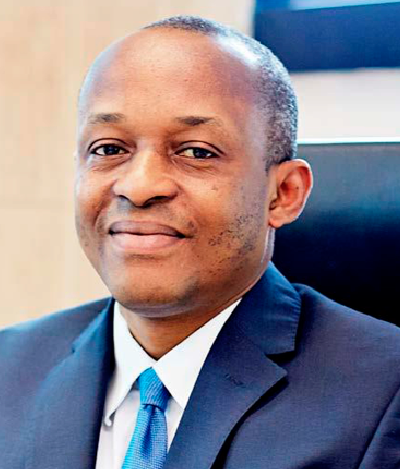
Capital Bank collapse: Ato Essien’s lawyer grills receiver
Lawyers for the founder of the defunct Capital Bank, William Ato Essien, have attacked a report by the Joint Receivers detailing alleged suspicious transactions at the bank.
This came up yesterday at the Accra High Court during the trial of Essien, the Managing Director of the bank, Fitzgerald Odonkor, and two other persons — Tettey Nettey, the Managing Director of MC Management Services, a company said to be owned by Essien, and Kate Quartey-Papafio, a businesswoman.
All the accused persons have denied any wrongdoing and have pleaded not guilty to all the 26 counts
Alleged suspicious transactions
The Joint Receivers identified three main transactions as allegedly suspicious that led to the dissipation of a GH¢620 million liquidity support given to the bank by the Bank of Ghana (BoG) between June 2015 and November 2016.
One of the joint receivers, Mr Vish Ashiagbor, had earlier testified about three alleged suspicious transactions during his evidence-in-chief.
For example, he said, Essien took GH¢27.5 million of the liquidity support and used it as payment for business promotions.
Also, he testified that GH¢130 million of the liquidity support was given to a company known as All Time Capital to be used for the purchase of commercial papers but the amount ended up being used to set up another bank, known as Sovereign Bank.
The witness further said GH¢70 million of the liquidity support, which was part of a financing arrangement supposedly meant to discount the invoices of three companies which had executed work for the Department of Urban Roads (DUR), was transferred to the account of the fourth accused person, Quartey-Papafio.
The businesswoman, he said, transferred the amount back to Capital Bank to be used for the purchase of shares of the bank.
Cross –examination
During the cross-examination yesterday, counsel for Essien, Mr. Thaddeus Sory, perused each of the three alleged suspicious transactions and sought to make a case that they were actually genuine transactions.
With regard to the GH¢70 million, counsel made a point through his questioning that it was transferred to one of the accused persons — Quartey-Papafio as a result of the discounting of certain payment certificates, which he said was a normal banking practice.
He added that Capital Bank as an institution voluntarily transferred the money to Quartey-Papafio, which the witness agreed.
Counsel then asked Mr. Ashiagbor to confirm if Quartey-Papafio transferred the money back to Capital Bank, to which the witness answered in the affirmative.
Counsel said that meant the money was now under the control of the receivers since the money was paid back to the bank. Mr. Ashiagbor disagreed.
Below are excerpts of the cross-examination
Thaddeus Sory: So where is the money?
Vish Ashiagbor: The money came back to Capital Bank, and once Capital Bank went into receivership and GCB Bank assumed parts of the business of Capital Bank, any cash available was assumed by GCB Bank.
Other transactions
With regard to the transaction involving the GH¢27.5 million, Mr Sory sought to make a case that all the business promotion purposes that the money was used for were clearly detailed and approved by the bank, to which the witness answered in the affirmative.
Counsel then asked the witness if any of the records detailing the disbursement of the GH¢ 27.5million included the name of Essien.
“No, they don’t,” Mr. Ashiagbor answered.
In relation to GH¢130 million, Mr. Sory made a case that the amount was a purely business transaction which was approved by the top management of Capital Bank.
The witness disagreed with counsel and answered that actually the records showed that the management of the bank “was concerned about the validity of the transaction.”
The cross–examination will continue on October 22, this year, at the court, presided over by Justice Eric Kyei Baffour, a Justice of the Court of Appeal sitting as a High Court judge .
Background
Capital Bank was one of the first banks that collapsed after a massive clean-up of financial institutions by the BoG started in 2017.
On August 14, 2017, its licence and that of UT Bank were revoked by the BoG, after the BoG had declared them insolvent.
The BoG allowed the state-owned bank, the GCB Bank, to acquire the two banks in order to protect depositors’ funds and also enable them to stay afloat.
The hurricane that swept through the banking sector due to the collapse of the two banks further heightened in August 2018 when the central bank collapsed five other indigenous banks and merged them into one entity — Consolidated Bank, Ghana.
Writer’s email: emma.hawskon@graphic.com.gh

 Click the link to read your copy.
Click the link to read your copy.